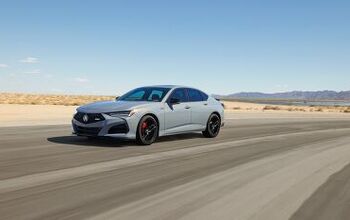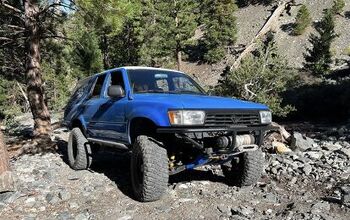Automakers Worried About A123 Deal, Stabenow And Levin Silent, No Phonecalls From The President

U.S. Senators long have warned of an exodus of American know-how to China. Last year, Michigan Senators Debbie Stabenow and Carl Levin complained to United States Trade Representative Ron Kirk about another attempt by China ”to illegally gain an unfair advantage over the U.S. automobile industry that will cost our country jobs. The United States must respond strongly to stand up for American businesses and working families.”
A year later, the exodus is in full swing, and it starts to hurt. This time, it pains automakers to see how Chinese companies are getting their hands on taxpayer-funded secrets.
Battery maker A123, hailed by Michigan Governor Jennifer Granholm as a contributor to “63,000 jobs,” praised by Senator Levin for hiring “thousands of employees by next year,” praised again by Senator Stabenow for creating “thousands of jobs for us in Michigan,” will power the creation of thousands of jobs in China.
Two years ago, this video was posted on Youtube, complete with an allegedly impromptu telephone call, President Obama congratulated A123 “on this tremendous milestone” of being “the first American factory to start high volume production of advanced vehicle batteries.” Two years, a $249 million grant from the Obama administration, a $135 grant and tax credit from the State of Michigan later, A123 is just about out of money, and being rescued by the Chinese. China’s Wanxiang Group wants to pay $465 million for A123, a move that “may help China unlock the secrets to critical and advanced green-car technologies,” as Reuters writes in a thorough analysis of the deal.
Author Norihiko Shirouzu talked to “engineering chiefs from two global auto makers,” (he names GM and Toyota in the lede, but does not connect the names to the unnamed sources) who “expressed concern at the prospect that A123 could lose control of its fiercely guarded battery design and manufacturing know-how. They are particularly worried that Wanxiang might shift part of A123’s research and development activities to China.”
Said one Chief Engineer to Reuters:
“I don’t care if A123 manufactures more battery cells and packs in China. That wouldn’t jeopardize its technological advantage. But showing what’s inside their black box … the technology that makes those battery cells packed with energy, to its Chinese investor, which has its own battery business, is completely another matter.”
The secret sauce of A123’s batteries is iron-phosphate, a chemical that makes sometimes violently flammable lithium-ion battery much safer. Iron-phosphate is also used in batteries made by China’s BYD, a fact mentioned by Shirouzu three years ago, when he was still writing for the Wall Street Journal. There had been a low level intellectual property conflict between A123 ever since. There were reports that A123 was looking to sue BYD over the batteries, but apparently, A123 soon had more pressing problems.
Wanxiang, says Reuters, profited from the troubles of the U.S. auto industry, “having bought up distressed parts makers over the past decade. It formed a joint venture which bought and turned around Driveline Systems, an axle maker in Illinois, and has taken over parts operations from Ford Motor Co, among others in the U.S. Midwest.”
Today, Reuters writes in a separate report that the A123 deal has closed:
“A123 Systems said the planned investment includes an initial credit extension of $25 million that it expects to receive this week. The rest coming through a mix of convertible notes and bridge finance with warrants, as certain conditions are met. The line of credit would help A123 keep making batteries for electric and hybrid cars. Last month, the company said it was left with only 5 months of cash. If all the warrants and notes are later converted to shares, Wanxiang will own 80 percent of the firm, A123 said in a statement. The agreement follows the non-binding memorandum of understanding that A123 signed last week.”
No protests were heard from Senators Stabenow and Levin against their baby A123 going to China. Stabenow, who used to complain that “China’s “New Energy Vehicles” plan will harm American companies and workers, cost Michigan jobs,” now chose to focus on the farm bill, and the funding of harbors.

Bertel Schmitt comes back to journalism after taking a 35 year break in advertising and marketing. He ran and owned advertising agencies in Duesseldorf, Germany, and New York City. Volkswagen A.G. was Bertel's most important corporate account. Schmitt's advertising and marketing career touched many corners of the industry with a special focus on automotive products and services. Since 2004, he lives in Japan and China with his wife <a href="http://www.tomokoandbertel.com"> Tomoko </a>. Bertel Schmitt is a founding board member of the <a href="http://www.offshoresuperseries.com"> Offshore Super Series </a>, an American offshore powerboat racing organization. He is co-owner of the racing team Typhoon.
More by Bertel Schmitt
Latest Car Reviews
Read moreLatest Product Reviews
Read moreRecent Comments
- Lorenzo I just noticed the 1954 Ford Customline V8 has the same exterior dimensions, but better legroom, shoulder room, hip room, a V8 engine, and a trunk lid. It sold, with Fordomatic, for $21,500, inflation adjusted.
- Lorenzo They won't be sold just in Beverly Hills - there's a Nieman-Marcus in nearly every big city. When they're finally junked, the transfer case will be first to be salvaged, since it'll be unused.
- Ltcmgm78 Just what we need to do: add more EVs that require a charging station! We own a Volt. We charge at home. We bought the Volt off-lease. We're retired and can do all our daily errands without burning any gasoline. For us this works, but we no longer have a work commute.
- Michael S6 Given the choice between the Hornet R/T and the Alfa, I'd pick an Uber.
- Michael S6 Nissan seems to be doing well at the low end of the market with their small cars and cuv. Competitiveness evaporates as you move up to larger size cars and suvs.

































Comments
Join the conversation
Like Ronnie, I think, I have the misfortune of having Stabenow and Levin as my senators, as well as Carl Levin's brother Sander as my congressman. It's marginally better than being represented by John Conyers.
Sorry, I can't feel much sympathy for you guys with the loss of tech and knowhow to China. Since World War II at least, the U.S has been pulling in a lot of the best and brightest engineers and scientists from all over the world, including China, with higher wages then the rest of us could afford. It was called the "Brain Drain". Things are just evening up a bit now- get used to it.